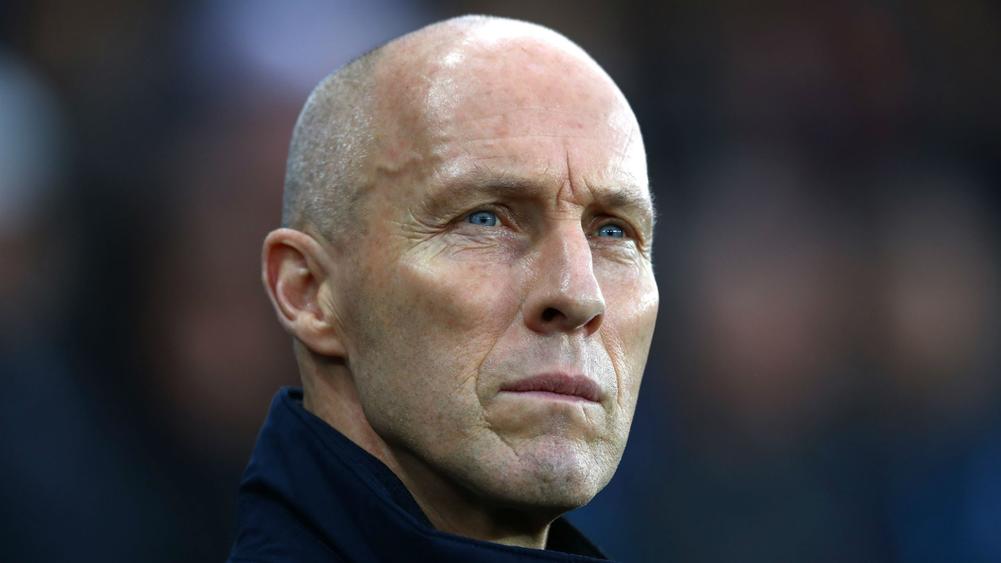The first American manager to be appointed in a major European league lasted just 85 days in the job.
Premier League side Swansea City fired former United States men’s national team head coach Bob Bradley on Tuesday, less than three months since his Oct. 3 appointment. He compiled a 2-7-2 record and under his watch, as Swansea tumbled down to 19th place, tied with last-place Hull City on points.
Through 18 rounds of games, the Swans had fallen four points behind 17th-place Crystal Palace, the last team safe from relegation.
Swansea City can confirm that the club has parted company with manager Bob Bradley. Full story to follow. pic.twitter.com/jMJ8wkUvgh— Swansea City AFC (@SwansOfficial) December 27, 2016
Swansea lost its third game in a row on Monday at West Ham, 4-1, in disheveling fashion as the defense gave away one cheap goal after another. Following earlier 3-0 and 3-1 losses at Middlesbrough and West Bromwich Albion, respectively, over the previous two weeks, it was apparent that Bradley was on the hot seat.
“We are sorry to lose Bob after such a short period of time,” Swansea chairman Huw Jenkins said in a statement. “Unfortunately things haven’t worked out as planned and we felt we had to make the change with half the Premier League season remaining. With the club going through such a tough time, we have to try and find the answers to get ourselves out of trouble.”
“Personally, I have nothing but praise for Bob,” Jenkins added. “He is a good man; a good person who gave everything to the job. His work-rate is phenomenal and we wish him well for the future.”
In the high-stakes relegation game – with tens of millions of pounds on the line – Premier League teams have traditionally avoided risk like the plague. And in a climate of hyper-disposable managers, the perception of avoiding risk is simply to dump the manager and see if someone else will do better. Which is how the Swans, once an overachieving and exceedingly well-run club, will now appoint their third manager of the season – perhaps before the turn of the year – for the second year in a row.
To an extent, the Swans will “lose” Bradley – which must surely be the lamest of euphemisms for firing someone – because it was considered the easiest solution. But there are bigger issues.
 |
Bob Bradley’s final game as Swans boss was a 4-1 loss to West Ham on Boxing Day. (Getty Images)
|
Bradley was installed on Oct. 3 after the Italian Francesco Guidolin – who had saved the club from relegation last season after taking over in January 2016, also as the third manager of the campaign – was ousted. As such, Bradley – the New Jersey native who became the first American to manage in any major European league after a circuitous career winding through Major League Soccer, the U.S. and Egyptian national teams, Stabaek in Norway and Le Havre in France – never even had the luxury of a transfer window to strengthen his deeply flawed team.
The Swansea defense – before, during and after Bradley’s tenure – is a dumpster fire. The club never replaced Ashley Williams, sold to Everton over the summer, when in fact Swansea needed reinforcements in the back, not merely to retain the status quo. Over Bradley’s 11 games, Swansea conceded 29 times for a woeful 2.63 average goals conceded.
Things, however, did not improve under Bradley. And that was his task. Under Guidolin, the Swans averaged 0.57 points per match – and actually conceded almost half a goal less per game. Under Bradley, it was 0.72. An uptick, but not nearly enough to instill confidence that he would steer the club away from relegation.
He faced long odds aside from taking over a troubled team. A deep stigma about an American working in the English game hampered him from his appointment, enacted by a new and skeptically-viewed American ownership no less. The locals believed Ryan Giggs, a fellow Welshman who starred with Manchester United for two decades but has yet to make a dent in management, was the better option over the highly experienced Bradley.
Bradley was pilloried for using words like “PK” or “field,” which were seen as Americanisms.
It was all fairly silly, but it contributed to a climate of negativity around a hiring made without the input of a sizable group of fans who own a share of the club.
Bradley, to his credit, tried to play positive and pretty soccer with a team that may not have had the talent to pull it off. At the very least, the games were enjoyable. Maybe this was naive. Most would-be relegationists opt for a destructive approach in the hopes of clawing out enough points to survive.
“I knew exactly what I was getting into when I came to Swansea and realized the hardest part was always going to be getting points in the short run,” Bradley told NBC Sports. “But I believe in myself and I believe in going for it. That’s what I’ve always told my players. Football can be cruel and to have a chance you have to be strong. I wish Swansea the best and look forward to my next challenge.”
In the end, Bradley attempted something no American had pulled off before and, as ever, he tried to do it to the best of his ability. A lot of things were working against him. And now the 58-year-old’s trailblazing career will have to carry on elsewhere.
No comments:
Post a Comment